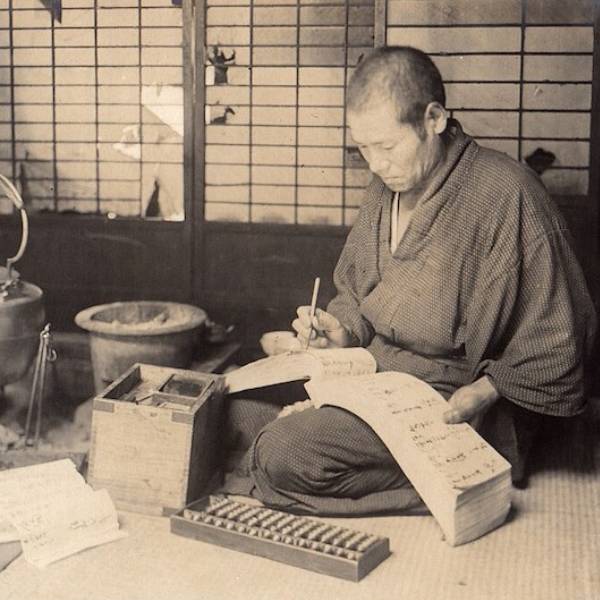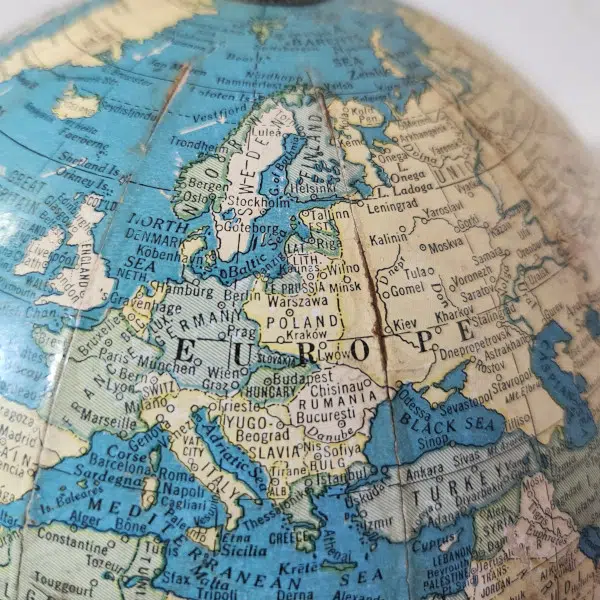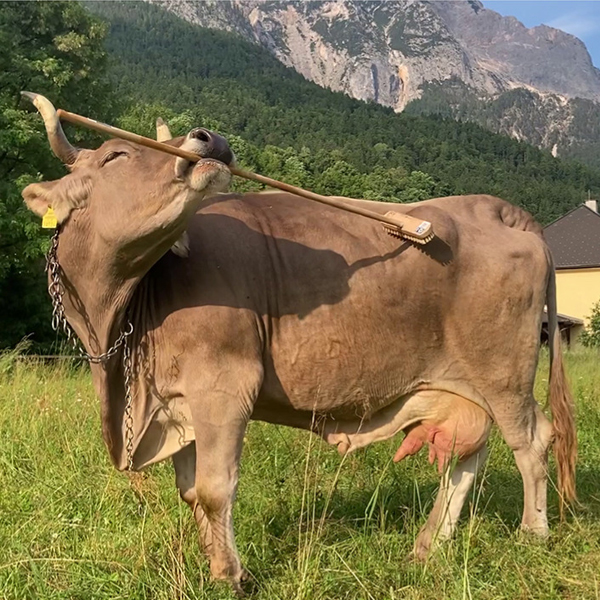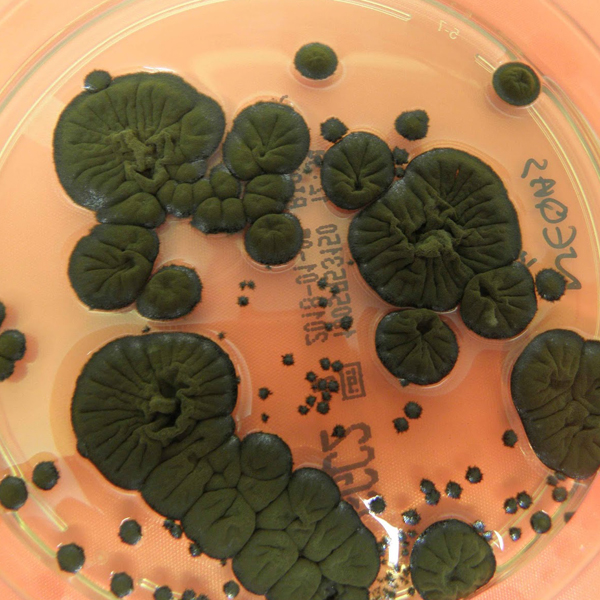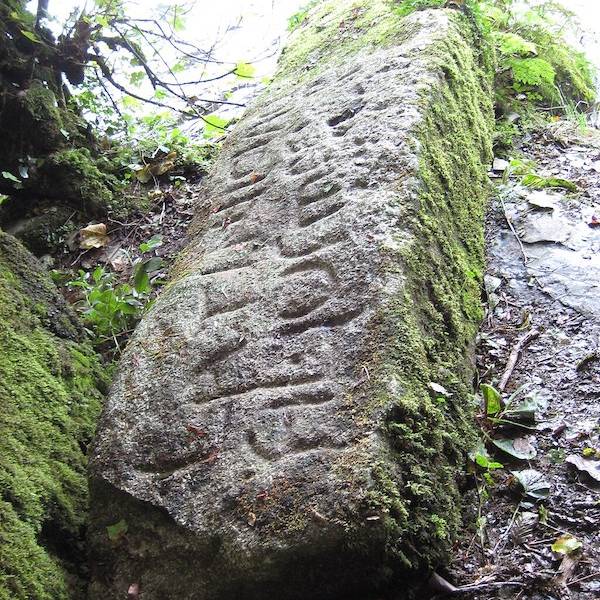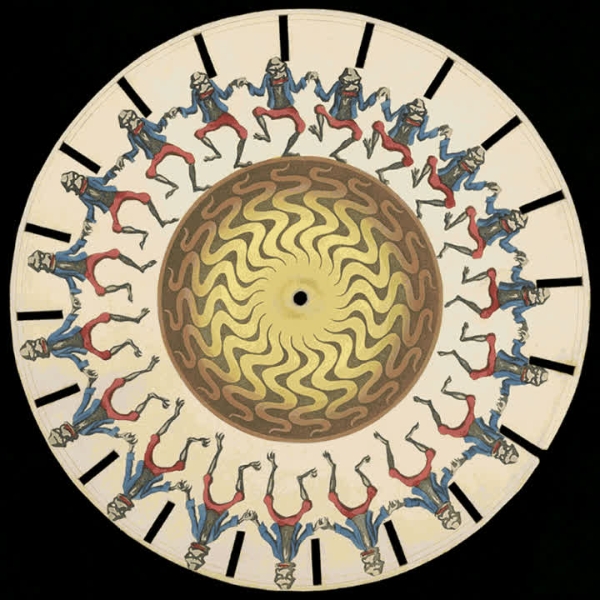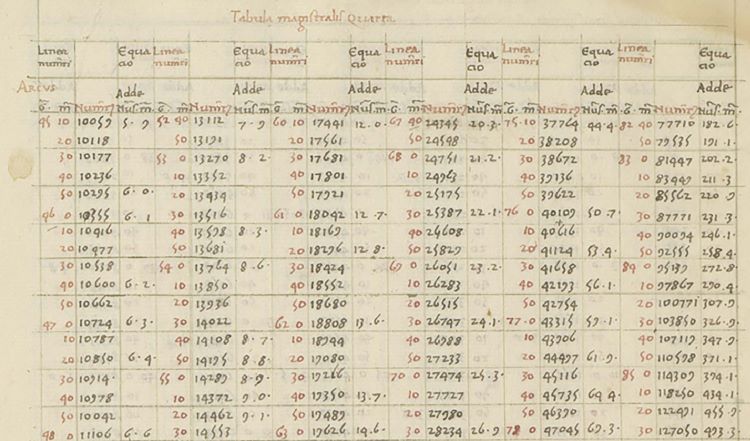
Excerpt from “Tabulae primi mobilis” by Giovanni Bianchini. (Photo: Biblioteca Medicea Laurenziana, Florence via Historia Mathematica)
For centuries, the earliest known use of the decimal point appeared in 1593, when the German mathematician Christopher Clavius wrote it in an astronomy book. Since then, it has radically changed the course of mathematics. However, it was recently discovered that the first documented use of the decimal point was not in 1593 but over 100 years before in Renaissance Italy.
When the Venetian merchant Giovanni Bianchini wrote Tabulae primi mobilis in the 1440s, he used the decimal point to calculate the coordinates of the planets. By doing this, Bianchini invented the system of decimals, which would, in turn, make scientific calculations far more accurate. Years later, Clavius would borrow Bianchini's decimal point, leading to confusion about the true origins of the mathematical symbol.
In a recent NPR episode, Glen Van Brummelen, a historian of mathematics, recounted how he discovered Bianchini's invention. In the episode, Brummelen said, “I was working on the manuscript of this astronomer, Giovanni Bianchini. I saw the dots inside of a table—in a numerical table.”
“And when he explained his calculations, it became clear that what he was doing was exactly the same thing as we do with the decimal point. And I'm afraid I got rather excited at that point. I grabbed my computer, ran up and down the dorm hallway looking for colleagues who still hadn't gone to bed, saying, this person's working with the decimal point in the 1440s. I think they probably thought I was crazy.”
You can listen to the rest of the episode here.
A mathematical historian recently discovered that the decimal point is about 150 years older than we thought. It was first used in a text by Venetian merchant Giovanni Bianchini in the 1440s.
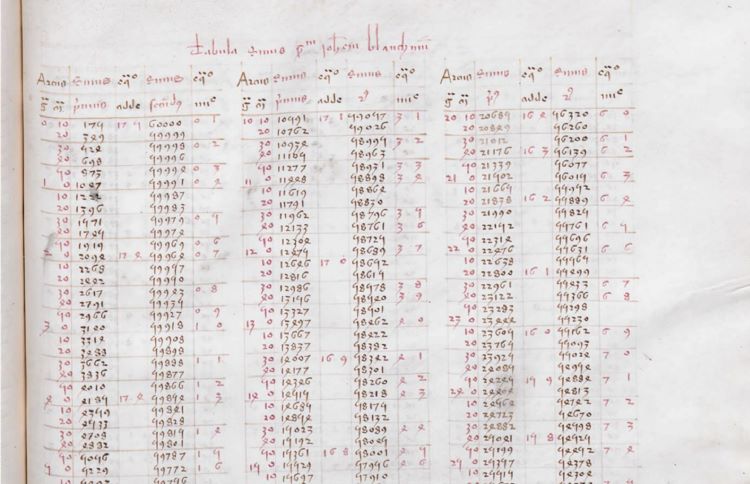
Excerpt from “Tabulae primi mobilis” by Giovanni Bianchini. (Photo: Biblioteca Medicea Laurenziana, Florence via Historia Mathematica)
h/t: [Open Culture]
Related Articles:
Researchers Crack Mathematical Code of 3,700-Year-Old Babylonian Tablet
Man Wins the Lottery 14 Times Using a Simple System of Basic Math
The Internet Can’t Seem to Agree on the Answer to This Math Puzzle
Coloring Book Combines Math and Art in Illustrations of the Golden Ratio Found in Nature











































































